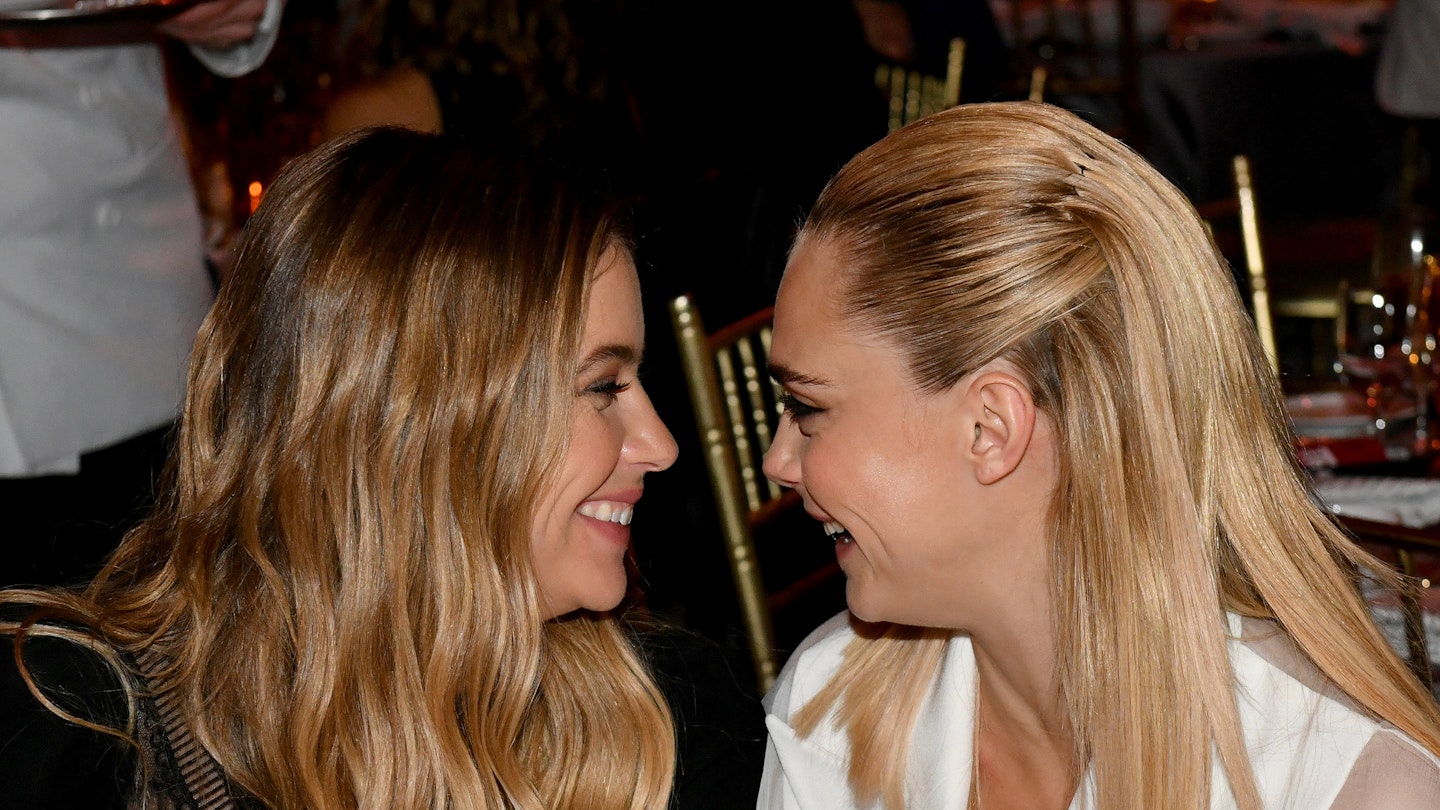Sharing queer memes, showing up to a party with someone of the same gender, commenting on a hot actor when watching a Netflix show with family: there are plenty of ways to come out. It didn’t take long interviewing teen girls for a sexuality chapter of my new book Fangirls to discover the idea is of sitting your parents down and breaking ‘the news’ feels to some like a rite of passage for a different generation. Plenty didn’t bother to come out at all – in fact they said that parents had either guessed from the amount of queer media they consume (in this instance, listening to bisexual artist Halsey) or they resolutely didn’t want to ‘come out’ per se.
Newlyweds (we think) Ashley Benson and Cara Delevingne are the perfect example of young queer people not announcing their arrival. Cara came out as bisexual in a 2015 interview, while Ashley has never come out publicly. Although queer women took all of five seconds to guess they were more than just ‘gal pals’ to quote the Daily Mail, they didn’t confirm their romantic relationship until about a year in, for Pride.
‘Coming out’ as a celebrity has its own unique consequences: on the one hand who cares about the internet trolls when you have millions sat in the bank and recently purchased a $400 piece of erotic furniture with your hot model girlfriend, but for the relative immunity and shelter of fame, you’re stuck in time (if you’re out, you’re out forever, and if you move from one label to another you can guarantee every news post will also cite your previous sexuality). That said, the thinking behind their relationship seems to be similar to that of the young people I’ve spoken to.
The new, more embodied acceptance of sexuality as fluid is, I think, key to this. People aged 16 to 24 were more than twice as likely as the general population to identify aslesbian, gay or bisexual in a recent survey – crucially, the majority of those are bisexual or sexually fluid. Only two thirds of young people identify as exclusively straight. As I’ve seen more friends and old colleagues come out through their early twenties and beyond, I’ve seen fewer bi/pan or fluid ‘coming out’ statements. Identification does not necessitate ‘coming out’.
If your sexuality is not an either/or statement – you’re not ‘coming out’ from one assumed position to another, it makes sense that it doesn’t feel as necessary to publically observe it. If you’re occupying a grey area, rather than a label, what feels like the right way to go about traditionally defining it? Perhaps it feels like there is no immediate community with a rich history to ‘come out’ to – that you might have if you were gay or lesbian. It might feel like a nothing statement to ‘come out’ as saying you are attracted to and sleep with people regardless of gender. If you’re currently in a relationship or dating opposite-gender, then it might feel non-committal, almost, or the internalised bi-phobia of feeling like you don’t have a ‘right’ to come out.
It’s reflective of something more positive too. There’s the optimistic but (I think) fair assumption that homophobia and all forms of intolerance are less accepted among younger generations. With sexual fluidity and experimentation so high among teens, many told me that being fluid wasn’t a big deal at all – and even thought that to ‘come out’ to them felt like saying there was anything wrong with being queer. If your friend groups are full of people who are non-straight or have questioned their sexuality, then you can just go about your business without worrying.
‘Coming out’ for the first time for many fluid teens means following a bunch of queer Instagram accounts and reposting their jokes. It means becoming politically active, RTing queer causes and crowdfunding and news stories. It means getting into fan fiction, or Troye Sivan or Janelle Monáe or shipping women together in your favourite TV show. It can literally be as simple as reposting a news story of Ashley and Cara getting married and captioning it ‘mood’. It increasingly means participating in something online (and offline) and letting that speak for you.
For Cara and Ashley’s relationship, coming out didn’t matter because media and people on the outside would continue to comment and label as they see fit – scrolling through entertainment reports, plenty wrongly say Ashley came out as bisexual, when she has never done, or call Cara gay when she’s said she’s fluid or bisexual.
The reality is that for some young people ‘coming out’ officially can be as much a show of solidarity to others, as it is something that feels necessary to your own journey or personhood. As Cara Delevingne has had written in her (slightly cringe) Instagram bio for ages: ‘stop labelling, start living’.
